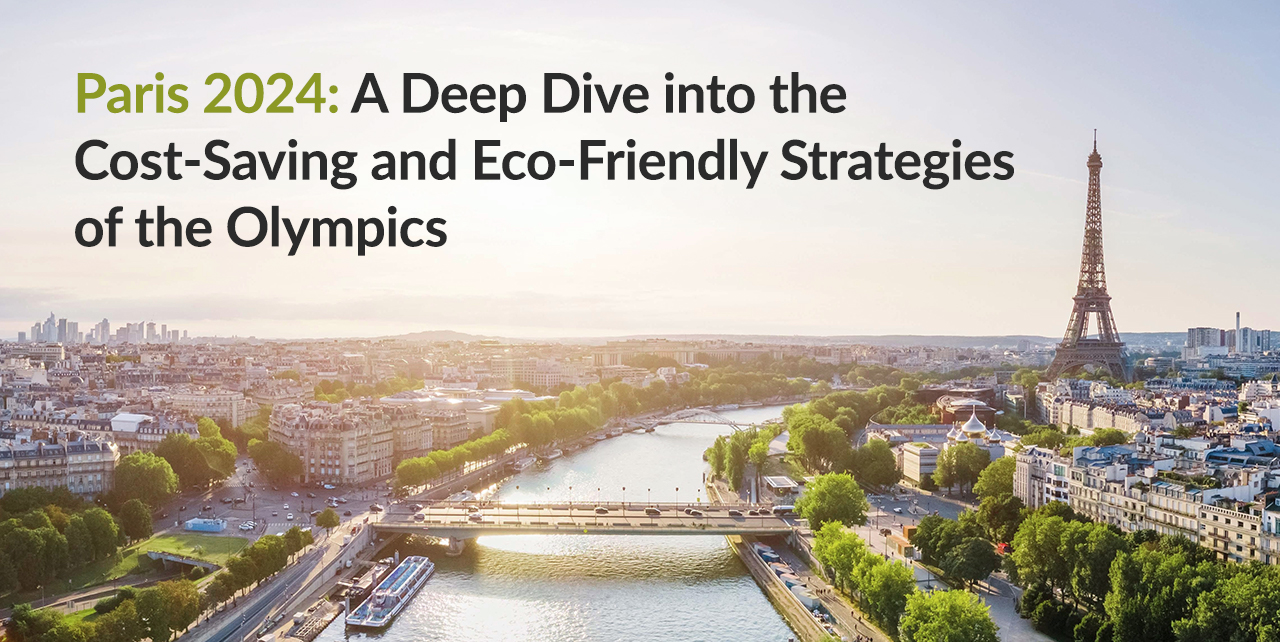The Paris 2024 Olympics have been recognized as a pioneering event, not just for the athletic feats on display but also for the innovative and sustainable approaches taken to reduce costs and environmental impact. The Games have set a new benchmark for how major global events can be managed responsibly, ensuring that economic efficiency and sustainability are at the forefront of planning and execution. Below is a detailed exploration of how Paris 2024 achieved these objectives.
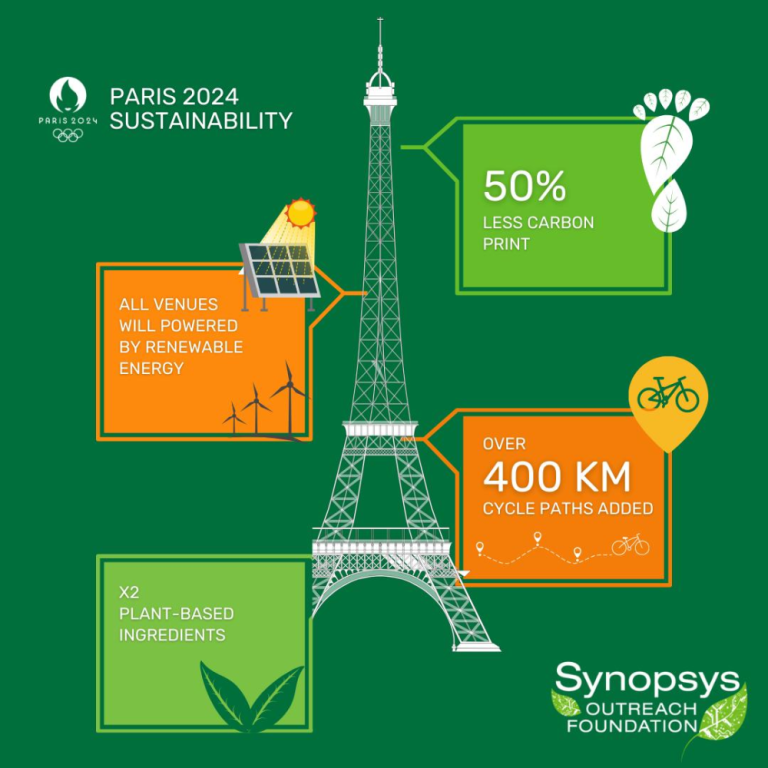
1. Cost Reduction Strategies
1.1. Utilizing Existing Infrastructure
One of the cornerstone strategies for reducing costs was the extensive use of existing infrastructure. Unlike many previous Olympics, where new venues were constructed—often leading to significant overspending and underuse after the event—Paris 2024 focused on repurposing and upgrading existing sites.
- Reusing Venues: Key venues like the Stade de France, built for the 1998 FIFA World Cup, and the Roland Garros Stadium, famous for the French Open, were repurposed for Olympic events. By leveraging these already established venues, the Paris 2024 organizers saved an estimated €2 billion in construction costs, a significant reduction in comparison to the budget overruns seen in previous Olympics.

- Limited New Construction: Only two new permanent structures were erected: the Olympic Village, which will be converted into affordable housing post-Games, and the Aquatics Center. The decision to limit new constructions was driven by both cost and sustainability concerns. The new builds were designed with a long-term vision, ensuring they would serve the community well beyond the Games.
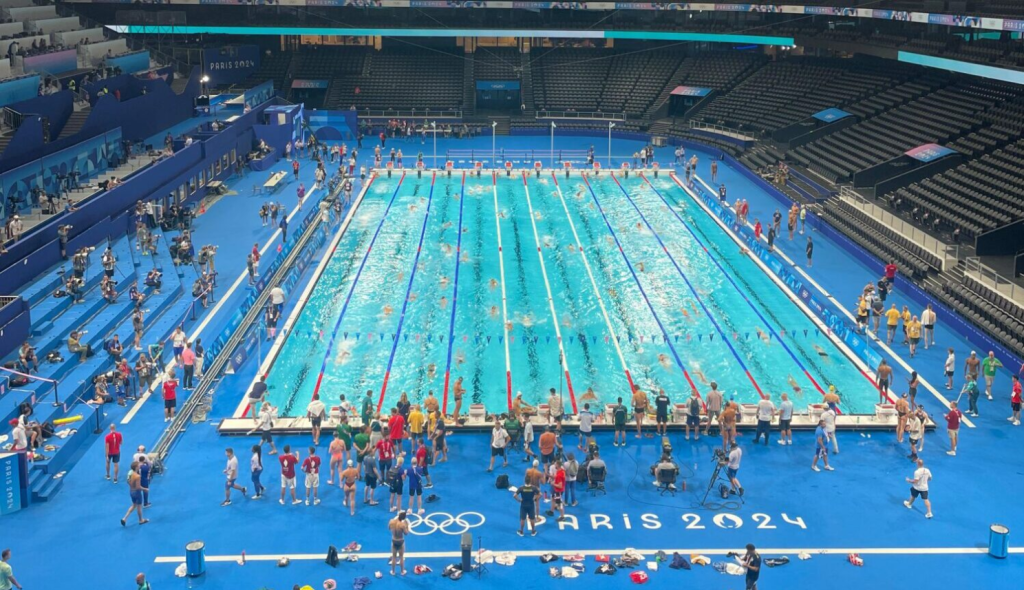
1.2. Efficient Resource Management
In addition to the smart use of infrastructure, Paris 2024 focused heavily on the efficient use of resources to cut costs.
- Asset Reuse: The organizers planned for the reuse of 90% of the 6 million assets involved in the Games, including furniture, equipment, and other materials. This proactive approach is expected to save up to €300 million in logistics and procurement expenses. The focus on reusing assets also significantly reduced the environmental footprint, cutting down on the need for new materials and the waste generated from the Games.
- Sustainable Procurement: Wherever possible, the procurement of materials for the Games emphasized sustainability. For instance, 11,000 seats in the stadiums were made from recycled materials, and temporary structures were designed for easy disassembly and reuse in future events. This not only minimized costs but also aligned with the broader sustainability goals of the Games.
2. Sustainability Initiatives
Paris 2024 aimed to be the greenest Olympics ever, with a bold commitment to reducing carbon emissions, promoting renewable energy, and minimizing waste. Here’s how they approached these challenges:
2.1. Carbon Emission Reduction
- Commitment to Halving Emissions: Paris 2024 set an ambitious target to reduce the carbon emissions typically generated by previous Olympic Games, which have averaged around 3.5 million tonnes of CO2. Through a combination of energy efficiency measures, renewable energy use, and waste reduction, Paris 2024 achieved a 50% reduction in carbon emissions. This was a remarkable feat, considering the scale of the event.
- Renewable Energy Usage: The Games were powered entirely by renewable energy, sourced from six wind farms and two solar farms. This shift from conventional energy sources to renewable ones prevented the emission of over 1.5 million tonnes of CO2 that would have otherwise been released. Additionally, all electricity used during the Games was certified as 100% renewable, setting a new standard for future Olympic events.
- Innovative Cooling Solutions: The Olympic Village employed an innovative cooling system that utilized river water to maintain comfortable temperatures without the need for energy-intensive air conditioning. This system was later supplemented with mobile cooling units during an unexpected heatwave, demonstrating the need for flexible, sustainable solutions in response to climate change.

2.2. Sustainable Transportation
Transportation is one of the largest contributors to an event’s carbon footprint, but Paris 2024 tackled this challenge head-on.
- Green Transport Options: To accommodate the 15 million visitors expected during the Games, Paris 2024 prioritized low-carbon transportation. The city of Paris expanded its cycling infrastructure, adding hundreds of kilometers of new bike lanes, and improved its public transport system with electric buses and enhanced Metro services. These efforts led to a 35% reduction in transportation-related emissions, demonstrating the effectiveness of investing in sustainable mobility solutions.
- Electric Vehicle Fleet: An entirely electric fleet was used for transporting athletes and officials. This move significantly reduced the carbon emissions typically associated with the extensive travel requirements of the Games. The fleet comprised 500 electric cars and a network of charging stations, further supporting the city’s long-term sustainability goals.
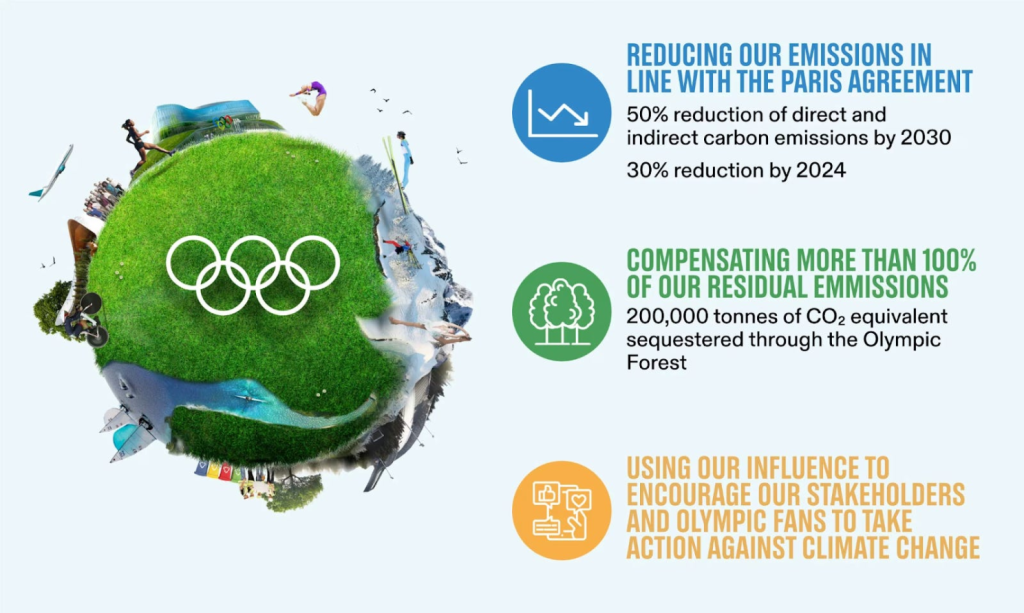
3. Environmental Responsibility
Paris 2024’s commitment to sustainability extended beyond reducing carbon emissions. The event also focused on recycling, waste management, and sustainable sourcing to minimize its environmental impact.
3.1. Recycling and Waste Management
- Comprehensive Recycling Program: The Games implemented an extensive recycling program, with waste sorting stations placed across all venues to ensure that materials were recycled effectively. For example, the beds in the Olympic Village were made from recycled cardboard, and 11,000 stadium seats were created from recycled plastic. These efforts diverted thousands of tonnes of waste from landfills.
- Medals from Recycled Materials: In a bid to highlight the importance of e-waste recycling, the medals awarded to athletes were made from recycled electronic devices. This initiative saved approximately 10 kilograms of gold, 1,200 kilograms of silver, and 700 kilograms of bronze, all of which would have required environmentally harmful mining processes if sourced traditionally.

3.2. Sustainable Food Sourcing
- Focus on Local and Plant-Based Foods: To reduce the carbon footprint associated with food, Paris 2024 prioritized local sourcing and plant-based meals. By sourcing ingredients locally, the Games cut down on transportation emissions and supported regional agriculture. Plant-based meal options were also emphasized, reducing the overall carbon footprint of the food served. The result was a 50% reduction in the carbon emissions from food production compared to previous Games.
- Minimizing Food Waste: The Paris 2024 organizers implemented strict measures to minimize food waste. They accurately forecasted food requirements and donated any excess to local charities, ensuring that no food went to waste. This approach not only reduced waste but also provided much-needed support to vulnerable communities in the region.
4. Long-Term Community Impact
Beyond the immediate goals of cost reduction and sustainability, Paris 2024 aimed to leave a lasting legacy that would benefit the local community for years to come.
4.1. Legacy Projects
- Affordable Housing from Olympic Village: One of the most impactful legacy projects of Paris 2024 is the conversion of the Olympic Village into affordable housing. Post-Games, the Village will provide 3,000 new housing units, helping to address the housing shortage in Paris. The Village was designed with this long-term purpose in mind, ensuring that the infrastructure would serve the community for decades.
- Promotion of Physical Activity: Paris 2024 has also invested in initiatives to promote physical activity, particularly among French youth. These programs aim to improve public health and reduce healthcare costs in the long term by encouraging a more active lifestyle. The Games have sparked a renewed interest in sports across France, which is expected to have positive social and economic impacts for years to come.
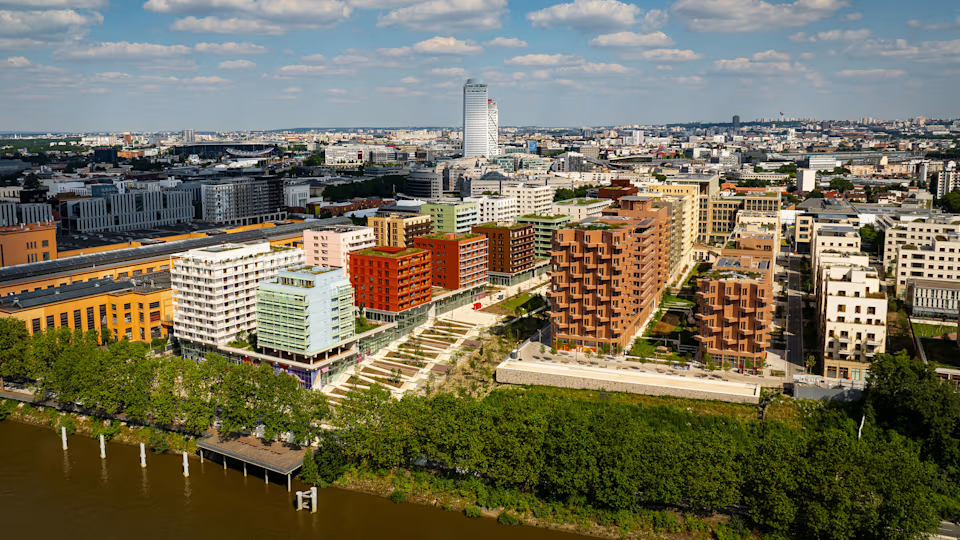
4.2. Economic Impact
- Boost to the Local Economy: The economic impact of the Paris 2024 Olympics is substantial, with projections estimating that the Games will generate between €6.7 billion and €11.1 billion for the French economy. This economic boost will create thousands of jobs, support local businesses, and contribute to the overall economic vitality of the Paris region.
- Sustainability as a Competitive Edge: By positioning sustainability at the core of its planning, Paris 2024 has not only enhanced its reputation on the global stage but also set a new standard for future Olympic Games. This approach is likely to attract more tourism and investment in the future, providing long-term economic benefits that extend far beyond the closing ceremony.
5. Challenges and Lessons Learned
While Paris 2024 achieved remarkable success in reducing costs and enhancing sustainability, it also faced several challenges that offer important lessons for future events.
- Balancing Sustainability with Practicality: Some of the sustainable initiatives, such as the recycled cardboard beds, faced criticism for not fully meeting the comfort needs of athletes. Similarly, the initial push for plant-based meals required adjustments to accommodate the nutritional requirements of high-performance athletes. These challenges highlight the importance of balancing sustainability goals with practical considerations.
- Adapting to Climate Conditions: The unexpected heatwave during the Games necessitated the introduction of mobile cooling units, despite the sustainable cooling system in place. This situation underscored the need for flexibility and contingency planning in response to climate conditions, even when innovative solutions are implemented.
The Paris 2024 Olympics have set a new benchmark for how major global events can be managed sustainably and cost-effectively. Through a combination of resource efficiency, carbon emission reduction, sustainable food sourcing, and long-term community impact, the Games have demonstrated that it is possible to host a world-class event without compromising on environmental and economic responsibility. The legacy of Paris 2024 will not only be remembered for its athletic achievements but also for its significant contributions to sustainability, offering a model for future Olympic Games and other large-scale events.
Sources:
All you need to know about Paris 2024 sustainability
Paris 2024 Olympics: Can Major Events be Sustainable?
10+1 Sustainable Practices at the Paris 2024 Olympics
Measures Taken by the Paris Olympics to Achieve Net Zero – SWITCH
Paris 2024: The ‘greenest ever Games’ has set a new standard for global events – I by IMD

